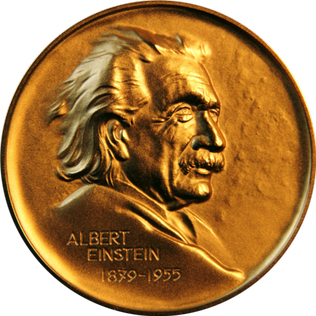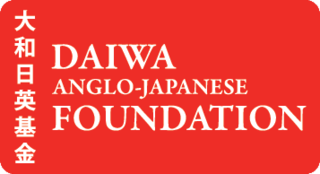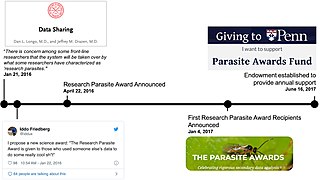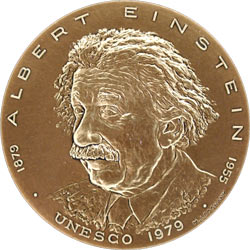 W
WLists of science and technology awards are lists that serve as indexes to articles about notable awards for specific areas of science and technology. Typically these lists give the country of the sponsoring organization, the award name, sponsor name and a description of the award criteria. Some of the awards have broad scope, or cover the intersection of different disciplines, so an award may appear in more than one list. A list of general awards for science and technology is followed by the lists of more specific awards.
 W
WThis list of general science and technology awards is an index to articles about notable awards for general contributions to science and technology. These awards typically have broad scope, and may apply to many or all areas of science and/or technology. The list is organized by region and country of the sponsoring organization, but awards are not necessarily limited to people from that country.
 W
WThe Albert Einstein World Award for Science is an annual award given by the World Cultural Council "as a means of recognition and encouragement for scientific and technological research and development", with special consideration for researches which "have brought true benefit and well being to mankind". Named for physicist and theoretician Albert Einstein (1879–1955); the award includes a diploma, a commemorative medal, and $10,000.
 W
WThe Baltic Assembly Prize for Literature, the Arts and Science is an award given annually by the Baltic Assembly for achievements in three categories: literature, art and science.
 W
WThe International Balzan Prize Foundation awards four annual monetary prizes to people or organizations who have made outstanding achievements in the fields of humanities, natural sciences, culture, as well as for endeavours for peace and the brotherhood of man.
 W
WBlavatnik Awards for Young Scientists was established in 2007 through a partnership between the Blavatnik Family Foundation, headed by Leonard Blavatnik, chairman of Access Industries, and the New York Academy of Sciences, headed by president Mr. Ellis Rubinstein.
 W
WThe Breakthrough Prizes are a set of international awards bestowed in three categories by the Breakthrough Prize Board in recognition of scientific advances. The awards are part of several "Breakthrough" initiatives founded and funded by Yuri Milner and his wife Julia Milner, along with Breakthrough Initiatives and Breakthrough Junior Challenge.Breakthrough Prize in Mathematics Breakthrough Prize in Fundamental Physics Breakthrough Prize in Life Sciences
 W
WThe Elliott Cresson Medal, also known as the Elliott Cresson Gold Medal, was the highest award given by the Franklin Institute. The award was established by Elliott Cresson, life member of the Franklin Institute, with $1,000 granted in 1848. The endowed award was to be "for some discovery in the Arts and Sciences, or for the invention or improvement of some useful machine, or for some new process or combination of materials in manufactures, or for ingenuity skill or perfection in workmanship." The medal was first awarded in 1875, 21 years after Cresson's death.
 W
WThis Daiwa Adrian Prize is an award given by The Daiwa Anglo-Japanese Foundation, a UK charity, to scientists who have made significant achievements in science through Anglo-Japanese collaborative research. Prizes are awarded every third year and applications are handled by the foundation with an assessment conducted by a panel of Fellows of The Royal Society.
 W
WThe OWSD - Elsevier Foundation Awards for Early-Career Women Scientists in the Developing World is awarded annually to early-career women scientists in selected developing countries in four regions: Latin America and the Caribbean, East and Southeast Asia and the Pacific, Central and South Asia, and Sub-Saharan Africa.
 W
WThe Freedom From Religion Foundation (FFRF) is an American non-profit organization, which advocates for atheists, agnostics, and non-theists. Formed in 1976, FFRF promotes the separation of church and state, and challenges the legitimacy of many federal and state programs that are faith-based. It supports groups such as nonreligious students and clergy who want to leave their faith.
 W
WFellowship of the American Association for the Advancement of Science (FAAAS) is an honor accorded by the American Association for the Advancement of Science (AAAS) to distinguished persons who are members of the Association. Fellows are elected annually by the AAAS Council for "efforts on behalf of the advancement of science or its applications [which] are scientifically or socially distinguished".
 W
WA Göran Gustafsson Prize is a national Swedish prize for outstanding scientific achievement awarded annually by the Royal Swedish Academy of Sciences in Chemistry, Mathematics, Medicine, Molecular Biology and Physics. It was created by means of a donation from Swedish businessman Göran Gustafsson and amounts to about US$450,000 as a research grant and US$25,000 as a private bonus.
 W
WThe Havenga Prize is a prize awarded annually by the Suid-Afrikaanse Akademie vir Wetenskap en Kuns to a candidate for original research in the Sciences since 1945. Candidates are judged on the quality of research publications and evidence of the promotion of Afrikaans. The Havenga prize can only be awarded to a person once, but can be awarded posthumously.
 W
WThe American Humanist Association (AHA) is a non-profit organization in the United States that advances secular humanism, a philosophy of life that, without theism or other supernatural beliefs, affirms the ability and responsibility of human beings to lead personal lives of ethical fulfillment that aspire to the greater good of humanity.
 W
WThe Faraday Medal is a top international medal awarded by the UK Institution of Engineering and Technology (IET). It is part of the IET Achievement Medals collection of awards. The medal is named after the famous Michael Faraday FRS, the father of electromagnetism. Faraday is widely recognized as a top scientist, engineer, chemist, and inventor. His electromagnetic induction principles have been widely used in electric motors and generators today.
 W
WImagine Cup is an annual competition sponsored and hosted by Microsoft Corp. which brings together student developers worldwide to help resolve some of the world's toughest challenges. It is considered as "Olympics of Technology" by computer science and engineering and is considered one of the top competitions and awards related to technology and software design. All Imagine Cup competitors create projects that address the Imagine Cup theme: "Imagine a world where technology helps solve the toughest problems". Started in 2003, it has steadily grown, with more than 358,000 competitors representing 183 countries and regions in 2011. The Imagine Cup worldwide finals have been held all over the globe. The Imagine Cup 2017 worldwide Finals was held in Seattle, United States.
 W
WThe IRI Medal, established by the Industrial Research Institute (IRI) in 1946, recognizes and honors leaders of technology for their outstanding accomplishments in technological innovation which contribute broadly to the development of industry and to the benefit of society. One side of the medal depicts a scientist peering into a microscope as a symbol of the never-ending quest for innovation; a pegasus running in the background as a symbol of imagination; and clouds issuing from a retort revealing the practical results of humanity's ability to harness natural forces to meet its needs. The reverse side of the medal is an adaptation of the official seal of the Institute. This award is traditionally presented each spring at the IRI Annual Meeting alongside the IRI Achievement Award.
 W
WThe Kamerlingh Onnes Award is in recognition of special merits of scientists active in the field of refrigeration technology, cryogenics and more generally low-temperature science and technology. It was founded in 1948 by the Royal Dutch Association of Refrigeration The name of the award is intended to keep the memory of Heike Kamerlingh Onnes alive. The award is assigned typically every four years and the winners get a golden medal and a certificate.
 W
WThe Kavli Prize was established in 2005 through a joint venture between the Norwegian Academy of Science and Letters, the Norwegian Ministry of Education and Research, and The Kavli Foundation. The main objective for the Prize is to honor, support and recognize scientists for outstanding scientific work in the fields of astrophysics, nanoscience and neuroscience and award three international prizes every second year. The Kavli Prize was awarded for the first time on 9 September 2008 in Oslo. The Prizes were presented by Haakon, Crown Prince of Norway. Each of the three Kavli Prizes consists of a gold medal, a scroll, and a cash award of US$1,000,000.
 W
WThe Kyoto Prize in Basic Sciences is awarded once a year by the Inamori Foundation. The Prize is one of three Kyoto Prize categories; the others are the Kyoto Prize in Advanced Technology and the Kyoto Prize in Arts and Philosophy. The first Kyoto Prize in Basic Sciences was awarded to Claude Elwood Shannon, the “Establishment of Mathematical Foundation of Information Theory”. The Prize is widely regarded as the most prestigious award available in fields which are traditionally not honored with a Nobel Prize.
 W
WThe Magellanic Premium, also known as the Magellanic Gold Medal and Magellanic Prize is awarded for major contributions in the field of navigation, astronomy, or natural philosophy.
 W
WThe Millennium Technology Prize is one of the world's largest technology prizes. It is awarded once every two years by Technology Academy Finland, an independent fund established by Finnish industry and the Finnish state in partnership. The prize is presented by the President of Finland. The Millennium Technology Prize is Finland's tribute to innovations for a better life. The aims of the prize are to promote technological research and Finland as a high-tech Nordic welfare state. The prize was inaugurated in 2004.
 W
WThe Minkowski Prize is given by the European Association for the Study of Diabetes (EASD) in recognition to research which has been carried out by a person normally residing in Europe, as manifested by publications which contribute to the advancement of knowledge concerning diabetes mellitus. The Prize honors the name of Oskar Minkowski (1858–1931), a physician and physiologist who was the discoverer of the role of pancreas in the control of glucose metabolism. It has been awarded annually since 1966, and the winner is invited to pronounce a Minkowski Lecture during the EASD Annual Conference. It is traditionally seen as the most prestigious European prize in the field of diabetes research.
 W
WThe National Medal of Science is an honor bestowed by the President of the United States to individuals in science and engineering who have made important contributions to the advancement of knowledge in the fields of behavioral and social sciences, biology, chemistry, engineering, mathematics and physics. The twelve member presidential Committee on the National Medal of Science is responsible for selecting award recipients and is administered by the National Science Foundation (NSF).
 W
WThe National Medal of Technology and Innovation is an honor granted by the President of the United States to American inventors and innovators who have made significant contributions to the development of new and important technology. The award may be granted to a specific person, to a group of people or to an entire organization or corporation. It is the highest honor the United States can confer to a US citizen for achievements related to technological progress.
 W
WThe Nobel Prize is not a single prize, but five separate prizes that, according to Alfred Nobel's 1895 will, are awarded "to those who, during the preceding year, have conferred the greatest benefit to humankind”.
 W
WThe Pirelli Internetional Award was first offered in 1996, as the first international multimedia competition for the communication of science & technology conducted entirely on the internet. Since then, annual awards have been granted to the best multimedia presentations focussing on themes involving the diffusion of science and technology. The multimedia presentations must deal with either physics, chemistry, mathematics, life sciences, or the enabling information and communication technologies that empower multimedia itself. According to Marco Tronchetti Provera, President of the Pirelli Group, the award was established in the belief that the diffusion of social, economic and technological advances are as important as their discovery. As the name indicates, the award is sponsored by the Pirelli Corporation.
 W
WThe Pythagoras Award, or The Pythagoras Prize, or The Pitagor Prize, established in 2009, is an award given annually to Bulgarian nationals by the Ministry of Science and Education of Bulgaria in recognition for outstanding scientific achievements.
 W
WThe Research Parasite Award is an honor given annually at the Pacific Symposium on Biocomputing to recognize scientists who study previously-published data in ways not anticipated by the researchers who first generated it. The tongue-in-cheek name of the award refers to a New England Journal of Medicine editorial that coined the term "research parasite" to disparage such work. The idea was first suggested on Twitter by Iowa State University researcher Iddo Friedberg shortly after the editorial was published, and was then brought to life by Casey Greene, a pharmacologist at the University of Pennsylvania.
 W
WThe Richard Dawkins Award is an annual prize recognizing those who exemplify values of secularism and rationalism. Named in honor of evolutionary biologist Richard Dawkins, the prize was first established by the Atheist Alliance of America in 2003, and since 2019 has been presented by the Center for Inquiry.
 W
WThe Shaw Prize is an annual award first presented by the Shaw Prize Foundation in 2004. Established in 2002 in Hong Kong, it honours"individuals who are currently active in their respective fields and who have recently achieved distinguished and significant advances, who have made outstanding contributions in academic and scientific research or applications, or who in other domains have achieved excellence. The award is dedicated to furthering societal progress, enhancing quality of life, and enriching humanity's spiritual civilization."
 W
WThe Tang Prize is a set of biennial international awards bestowed in four fields: Sustainable Development, Biopharmaceutical Science, Sinology, and Rule of Law. Nomination and selection are conducted by an independent selection committee, which is formed in partial cooperation with the Academia Sinica, Taiwan's top research institution.
 W
WThe UNESCO Albert Einstein Medal is awarded to outstanding scientific personalities who made a great contribution to science and international scientific cooperation. The medal was established by UNESCO to celebrate the centenary of the birth of Albert Einstein in 1979. The medal is awarded in gold, silver and bronze.
 W
WUSERN prize is an international award, established by USERN which is annually bestowed on scientists or researchers less than 40 years of age who have conducted a significant advancement or achievement in research, scientific education, or serving humanity in five scientific fields including medical sciences, life sciences, formal sciences, physical sciences, and social sciences. The candidates are refereed and scored by an international jury composed of Nobel laureates and top 1% scientists in the respective field accordingly to pre-planned scoring criteria.
 W
WThe National Science Board established the Vannevar Bush Award in 1980 to honor Vannevar Bush's unique contributions to public service. The annual award recognizes an individual who, through public service activities in science and technology, has made an outstanding "contribution toward the welfare of mankind and the Nation." The recipient of the award receives a bronze medal struck in the memory of Dr. Bush.
 W
WMargaret (Maggie) Werner-Washburne is a molecular biologist and Regents' Professor Emeritus of Biology. at the University of New Mexico. She was previously the president (2013–2015) of the Society for the Advancement of Chicanos/Hispanics and Native Americans in Science (SACNAS), which holds the largest broadly multidisciplinary and multicultural STEM diversity conference in the U.S. A pioneer in the genomics of the stationary phase of yeast, she is known for her innovative programs to attract and retain underrepresented minorities in STEM. Werner-Washburne has made great strides in the field of Genetics. She has done gene sequencing with organisms that are disease vectors, which allows a greater understanding of genetics in general.
 W
WThe Wrigley Trophy is an award given for motorboats. It was awarded as early as 1912 with a $1,500 cash prize. In 1912 the award was disputed when James A. Pugh contested the win by J. Stuart Blackton. He argued that Baby Reliance II was allowed a late entry and had already missed two rounds of competition.